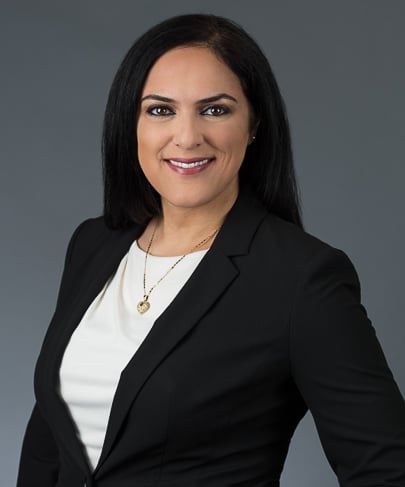Supreme Court Permits Narrow Travel and Refugee Ban on Trump’s Executive Orders
- Levasseur, Elise S. Sukkar, Suzanne K. Weber, Kevin J.
- Industry Alerts
Click “Subscribe Now” to get attorney insights on the latest developments in a range of services and industries.
On June 26, 2017, the U.S. Supreme Court granted certiorari and consolidated two key lower court cases related to the Trump Administration’s Executive Orders (“EO’s”) on travel and refugees issued earlier in 2017. The consolidated case will be heard during the Court’s first session of the October 2017 term. The Court also granted a partial stay of the injunctions preventing implementation of the travel ban of nationals of affected countries and ban on refugees from all countries but seemingly, the new order will not apply to many people while the Court case proceeds. The order does permit the Trump Administration to proceed with its planned review of world-wide visa security and screening procedures.
The Court-permitted ban is much narrower than the Trump Administration’s EO’s. Under the court order, officers of the Department of Homeland Security (“DHS”), the US. Department of State (“DOS”) and others are authorized to ban for a period of 90 days travelers from the six affected countries: Libya, Iran, Sudan, Syria, Yemen and Somalia, but only if those in question cannot demonstrate a bona fide relationship with a U.S.-based family member or entity. Refugees without a bona fide relationship with a U.S. individual or entity will be banned for a period of 120 days. Also, travelers cannot seek to establish a relationship with an entity solely for the purpose of evading the EO’s.
For individuals, a close family relationship is needed to overcome the ban. An individual who seeks to enter the U.S. to live with or visit a family member, such as a spouse or mother-in-law, “clearly” has such a relationship in specific examples outlined by the court order. With regard to entities, the relationship must be formal, documented and formed in the ordinary course of business. The Court cited examples of an offer of employment from a U.S. company, or a lecturer invited to address a U.S. audience as having a relationship with a U.S. entity.
On June 26, 2017, the DHS issued a statement confirming that it would later provide details on implementation after consultation with the Department of Justice (“DOJ”) and the DOS. The DHS further advised that implementation of the Court order “will be done professionally with clear and sufficient public notice, particular to potentially affected travelers, and in coordination with partners in the travel industry.”
The new ruling appears to affect only a very small number of travelers to the U.S. and should not affect the following depending on instructions coming from the DHS:
- Individuals with current valid visas (from the six affected countries) may continue to use their visas to travel to the U.S.
Those who are applying for visas will need to demonstrate a bona fide relationship with a person or entity in the U.S. during their visa interview. - Lawful Permanent Residents of the U.S., Asylees and others exempted from the EO’s including those already admitted as refugees, individuals traveling on advance parole and those granted withholding of removal and/or CAT (Convention Against Torture) are not included in the ban.
- Diplomats holding NATO, C-2, G-1, G-2 and G-3 or G-4 visas as well as dual nationals traveling on a passport issued by a non-affected country will be able to travel freely without having to demonstrate a bona fide relationship with a person or entity in the U.S.
- Refugees who are authorized to enter the U.S. have a bona fide relationship with refugee agency may have a bona fide relationship with a U.S. entity.
- Temporary workers from affected countries applying for an H, L, E, I, O P, Q or R nonimmigrant visas who have accepted an offer of employment from a U.S. company should be able to demonstrate a bona fide relationship with a U.S. entity.
This client alert is published by Dickinson Wright PLLC to inform our clients and friends of important developments in the field of immigration. The content is informational only and does not constitute legal or professional advice. We encourage you to consult a Dickinson Wright attorney if you have specific questions or concerns relating to any of the topics covered here.
DW Immigration: Global Mobility with a Personal Touch!
FOR MORE INFORMATION CONTACT:
Elise S. Levasseur is a Member in Dickinson Wright’s Troy office. She can be reached at 248.433.7520 or elevasseur@dickinsonwright.com.
Christian S. Allen is Of Counsel in Dickinson Wright’s Troy office. He can be reached at 248.433.7299 or callen@dickinsonwright.com.
Lisa D. Duran is a Member in Dickinson Wright’s Phoenix office. She can be reached at 602.285.5032 or lduran@dickinsonwright.com.
Suzanne K. Sukkar is Of Counsel in Dickinson Wright’s Ann Arbor office. She can be reached at 734.623.1694 or ssukkar@dickinsonwright.com.
Kevin J. Weber is a Partner in Dickinson Wright’s Toronto office. He can be reached at 416.367.0899 or kweber@dickinsonwright.com.
For a printable version of this immigration client alert, click here.
Related Practices
Contacts

Recent Insights
- Industry Alerts Travel Ban Expires, Replaced by Presidential Proclamation Restricting Travel for Certain Nationals of Chad, Iran, Libya, North Korea, Syria, Venezuela, Yemen, and Somalia
- Industry Alerts President Trump’s Third, Indefinite Travel Ban Takes Blows from Courts
- Industry Alerts New Electronic Visa Update System (“EVUS”) required by U.S.A. for B-1/B-2 & B-2 Chinese Nationals after November, 2016
- February 12, 2026 In the News Two Dickinson Wright Lawyers Recognized in Chambers Global Guide 2026
- February 11, 2026 In the News Kathleen Campbell Walker’s article, “The Complexity of Immigration Law,” was recently published in the Texas Bar Journal.
- January 13, 2026 Blogs Trump Gold Card or Pyrite Card Program – Which Is It?
- January 07, 2026 Blogs 2026 H-1B Employer Punch List: Regulatory and Filing Considerations
- December 4, 2025 In the News Two Dickinson Wright Attorneys Recognized in Lexology Index Thought Leaders Global Elite 2026
- December 01, 2025 Blogs Rising Scrutiny in Employment-Based Visas: What Employers Must Prepare For


